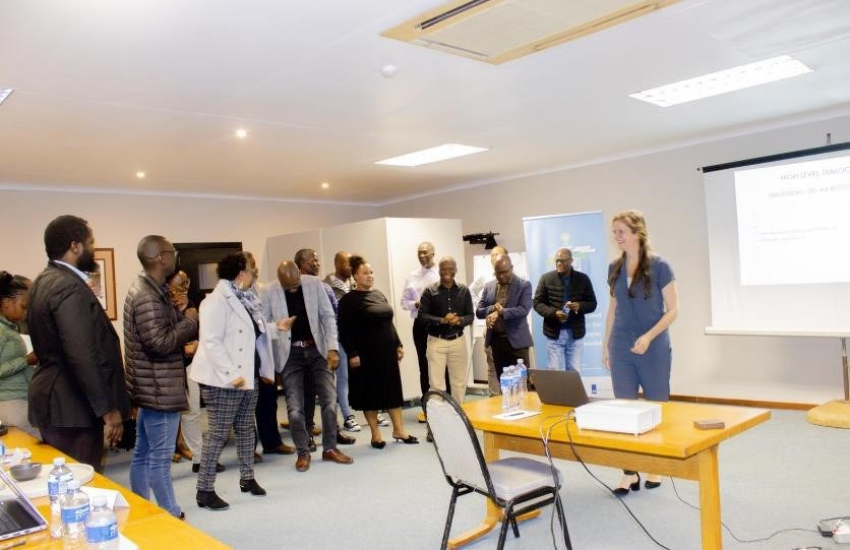In early November, a second visit for the High-Level Dialogue took place as part of Blue Deal Eswatini. During the first visit, discussions were held with all key stakeholders in Eswatini’s water sector. This second visit served as a follow-up.

The Dutch water authority Vechtstromen and the Dutch water authority Limburg are collaborating with water authorities in this southern African country to strengthen decentralised water management. The focus of this work visit was on financially sustainable integrated water resources management (IWRM). Key aspects included optimising the water management chain and ensuring sustainable financing. Intensive working sessions were held with the Ministry, as well as with directors and managers of the local water authorities.
3 main themes
From the interviews conducted during the first visit with the 13 main organisations involved in water management in Eswatini, 10 key issues were identified. These were analysed further, drawing on relevant literature, research reports, additional discussions with experts, and our own expertise. This process led to the main themes for the working sessions during this second visit:
- Clarity in tasks, roles, and responsibilities;
- Effective collaboration;
- Well-founded tax collection.
From theory to practice
Each working session comprised a theoretical component followed by the practical application of the material through various methods. These sessions explored both the current situation and potential ideal alternatives, fostering deeper understanding of the themes and of each other’s perspectives. This, in turn, provided valuable input for further discussions. Topics such as sharing personnel, reducing the number of administrative bodies, and potential organisational mergers were also addressed, despite their complexity and sensitivity.
Focus on end user
Thinking beyond the framework of the current Water Act (which is under revision) proved challenging but enabled constructive discussions. The shared goal emerged clearly: focus more on the end user and empower Eswatini’s water management.
Next steps
The work visit was a success. The atmosphere was positive, conversations were open, and the willingness to take the next steps was palpable. We gathered substantial input, which will be used to develop an action plan together with local partners. The aim is to formalise the Memorandum of Understanding (MoU) in the first half of 2025.
